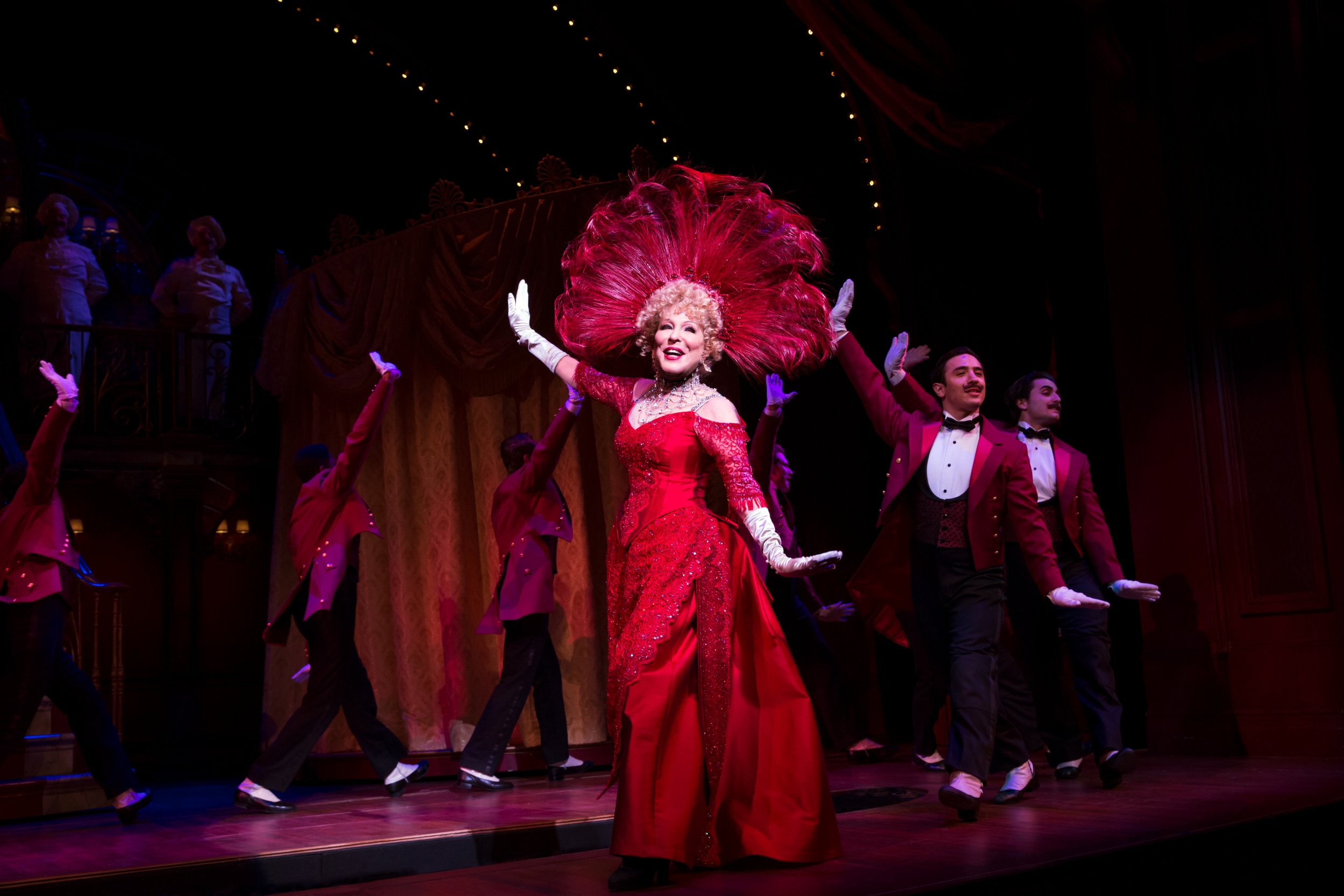
Bette Midler has come back to Broadway in a big way in the title role in Hello, Dolly!, the musical version of Thornton Wilder's play The Matchmaker. It's the perfect marriage of performer and role: Dolly is a huge part that requires someone who can sing and dance and deliver comic lines—all of which Midler can do. She is particularly good at singing composer-lyricist Jerry Herman's old-fashioned standards. Whatever Herman's other talents are, he sure knows how to end a song, usually with a bang.
Related: Glenn Close dominates the stage in 'Sunset Boulevard' musical
From the minute the curtain goes up and the overture begins, it is clear that Dolly is about as old-fashioned as a Broadway musical gets: In addition to the brassy, starring role, fit for a Merman or a Streisand, there are lines of chorus boys and chorus girls (and more chorus boys), and scenery drops that could have been used 100 years ago.
Dolly's plot is fairly simple. In 1880s New York, Dolly Gallagher-Levi (Midler) plays matchmaker to three couples, a practice she calls meddling. At the same time, she has her sights set on Horace Vandergelder (David Hyde Pierce), a widower worth half-a-million dollars. Otherwise, she has mostly modest needs: an old trombone, a fella's vacant knee and a big brass band. And somehow Midler makes this all seem so important. That is not to say she doesn't have a lot of help.
Pierce is not the type of actor one usually sees playing Vandergelder; more often the part goes to a big, blustery Paul Ford or John Goodman type. Pierce has likeableness that comes through in most of his roles. As Vandergelder, you don't take his grumbling too seriously, but you do get a good sense of why Dolly might be interested in him—aside from that $500,000 in the bank.
Gavin Creel and Taylor Trensch as, respectively, Cornelius Hackl and Barnaby Tucker, clerks in Vandergelder's store eager for a night on the town (and the chance to touch a woman), move easily from singing and dancing (the highlight being "Put on Your Sunday Clothes") to some great slapstick scenes.
Kate Baldwin plays a feisty Irene Molloy, a milliner and matchmaking client of Dolly's (and a woman eager to be touched). And as Baldwin has demonstrated many times before, most notably on Broadway in Finian's Rainbow, she can sing. Her rendition of "Ribbons Down My Back" is a sweet change of pace from the show's mostly brassy songs. And Beanie Feldstein, who makes her Broadway debut here as Minnie Fay, has several funny asides to the audience. In one, when Molloy enters during Fay's first speech, Baldwin gets entrance applause; without missing a beat Feldstein reacts as if it were her applause.
With all the talent and stardust on stage, one can forgive a few things, such as wondering why everyone is so excited about Dolly being in town. She is just a matchmaker, not a singer or a movie star. And when she shows up at the swanky Harmonia Gardens restaurant, the waiters really do overreact—when they sing the title song. (It seems that some former acrobats from Barnum & Bailey have found work here.) Even when one accounts for their working for tips, it's a bit over the top.
But that really doesn't matter at all. The song "Hello, Dolly!" is rousing and funny. And the dancers perform moves that are so acrobatic—including jumping over the orchestra pit onto a narrow walkway—that even Midler takes time out to admire them. It is as thrilling as it gets, the best showstopper in a show that has a few—e.g., "Put on Your Sunday Clothes," "Before the Parade Passes By" and any entrance or exit by Midler—and it epitomizes the best qualities of old Broadway musicals.
Ultimately though, this show belongs to Dolly, one of the best roles for an actress. And if, as that title song says, Dolly never does go away, it will be because multitalented performers like Midler will always be eager to play her.
Uncommon Knowledge
Newsweek is committed to challenging conventional wisdom and finding connections in the search for common ground.
Newsweek is committed to challenging conventional wisdom and finding connections in the search for common ground.
About the writer
To read how Newsweek uses AI as a newsroom tool, Click here.





